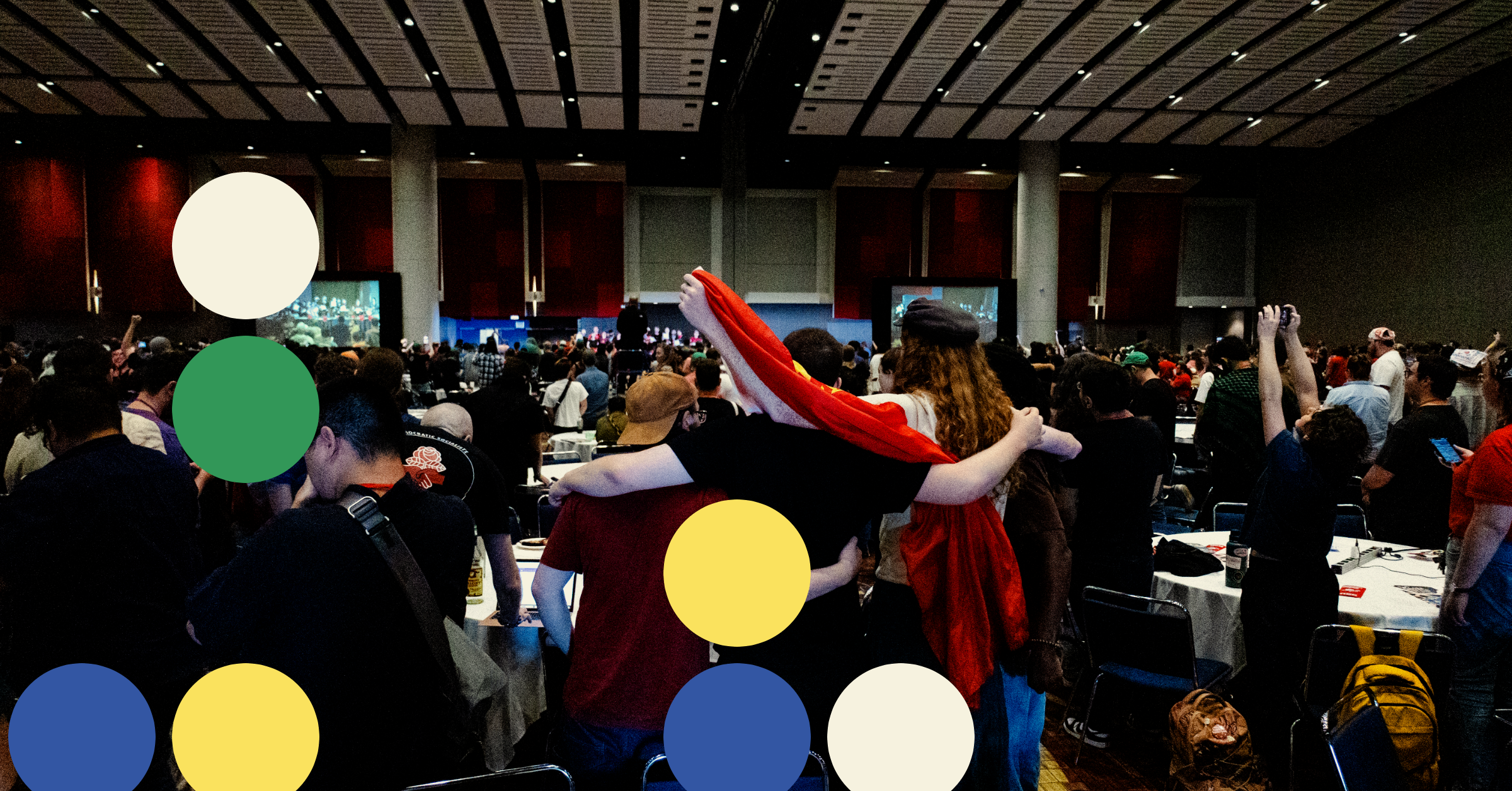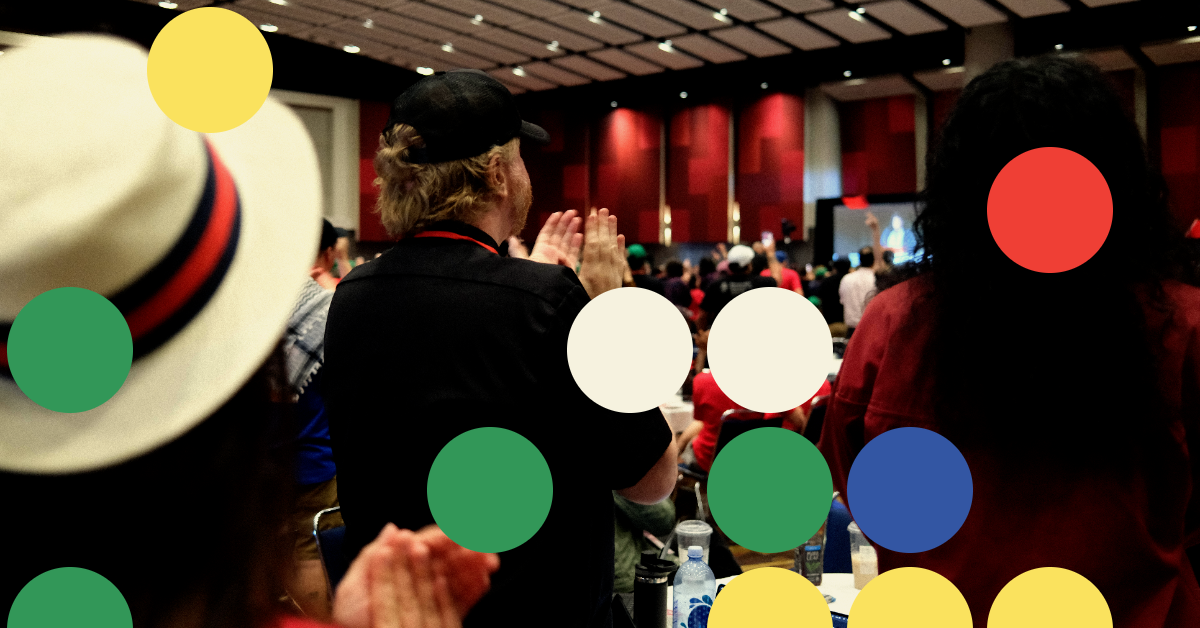DSA grew so rapidly from 2016 to 2021 that our structures have not kept up. And many of us, new to the American left and socialism, with little connection to past generations, had to learn how to do socialist organization on the fly. This has led to unneeded acrimony and missed opportunities.
Though DSA’s growth has slowed in the Biden era, we can think of this time in another way — as an opportunity to assess the needs of our organization. Now is the time to match our structures to our size and our belief in democracy, and that starts with launching a Democracy Commission.
Most DSAers would probably agree that our current structure is not meeting the needs of the majority of our nearly 78,000 members (as per the 2023 GDC report). DSA’s political orientation is vastly different from 2015, and structures from the pre-2016 era have largely struggled to keep up.
Local chapters feel disconnected from national, our elected political leadership is bogged down with administrative work, political decisions are sometimes de facto left to prominent staff, and members — left with no ability to affect national decisions between conventions — circulate petitions like they are lobbying their member of Congress. Democracy should be transformative, but in practice many DSA members feel they don’t have a voice.
Over three straight conventions, repeated attempts at changing parts of our structure have failed. Members or caucuses informally came together and put forward proposals, but without broad buy-in from membership (this is no slight towards any of those formations’ efforts).
Now, instead of ad hoc formations, with resolutions privately agreed on, we need to create a new kind of body, one with legitimacy and transparency, as multi-tendency as possible, that can research and put forward proposals for democratic reform at our next convention. This is why Bread & Roses is proposing that DSA create a Democracy Commission with our convention resolution “Launch a Democracy Commission for DSA.”
DSAers have consensus about the need to expand our own democracy. In an era where U.S. civil society has largely been hollowed out, the experience of a democratic, member-run organization can be transformative. Members want more than to be mobilized for campaigns that we had little input in shaping. Members want to debate and decide our collective political and strategic direction. Members want a vibrant internal political culture where we all feel connected and bought into the decisions being made.
We envision an organization where elected political leaders are empowered to lead with their politics out front by making transparent their decision-making process. We envision a DSA where members are treated as members and democracy means more than simply winning a majority. We envision a DSA where there is direct and meaningful communication between chapters and the national organization that creates a symbiotic relationship. A vibrant, member-led, democratic organization is what the vast majority of us in DSA want. The Democracy Commission aims to find the best set of organizational changes that will get us there.
What will the Democracy Commission do? It will bring together a multi-tendency group of members elected by 2023 convention delegates who will be charged with two tasks. First is to research and analyze the structures of other socialist organizations and parties across the globe, to explore the range of possibilities for transforming DSA. In that first year, the Democracy Commission will also assess what is working and what needs to change in all of DSA’s various bodies. The Democracy Commission should ask:
- How do we connect members in various parts of the organization and make them feel like they’re a part of a national organization?
- How can we make sure senior staff are acting in the democratic interest of our membership?
- What is the role of elected leadership in directing the organization?
- How can we create structures that ensure members are able to provide democratic input into the organization?
In the second year, the Democracy Commission will take the results of this analysis and prepare a comprehensive set of reforms to be considered at the 2025 convention. If the Commission works together well, imagine a slate of reforms with supermajority buy-in, with broad agreement about transforming our organization, where conflict is settled through politics and democratic process rather than personal acrimony, where every member has a voice and where we can collectively put our politics forward. It’s possible!
It is imperative that the Democracy Commission be seen as legitimate by the membership. Robert’s Rules of Order includes a recommendation for how an organization should attempt a big bylaws overhaul: form a drafting committee that is as representative of the membership as possible. This is in order to achieve broad buy-in and present proposals that the membership actually wants.
The same logic applies here. If we want to produce democratic structural reforms that will actually pass with a supermajority at the 2025 convention, we need a Democracy Commission that is as legitimate and representative of membership as possible. To this end, the resolution specifies open applications for the Commission, and its members will be elected by the democratically-elected convention delegates. And since it’s a commission rather than a self-selected group, with public meetings that will be open to members, the Democracy Commission will have the transparency and buy-in that a self-selected group would not.
This process creates the potential for mass support for an omnibus of reforms. It will allow input from members across the organization and across tendencies.
We encourage all tendencies and all members who don’t belong to caucuses to participate in the Democracy Commission with a spirit of mutual respect and cooperation. By learning from parties and organizations around the world, our imagination won’t be limited to our current shared knowledge of democratic organization. This proposal will expand our imagination of what DSA can be and give us the best shot for reforming DSA into the vibrant, mass, democratic, member-led, socialist organization that we all dream of.




